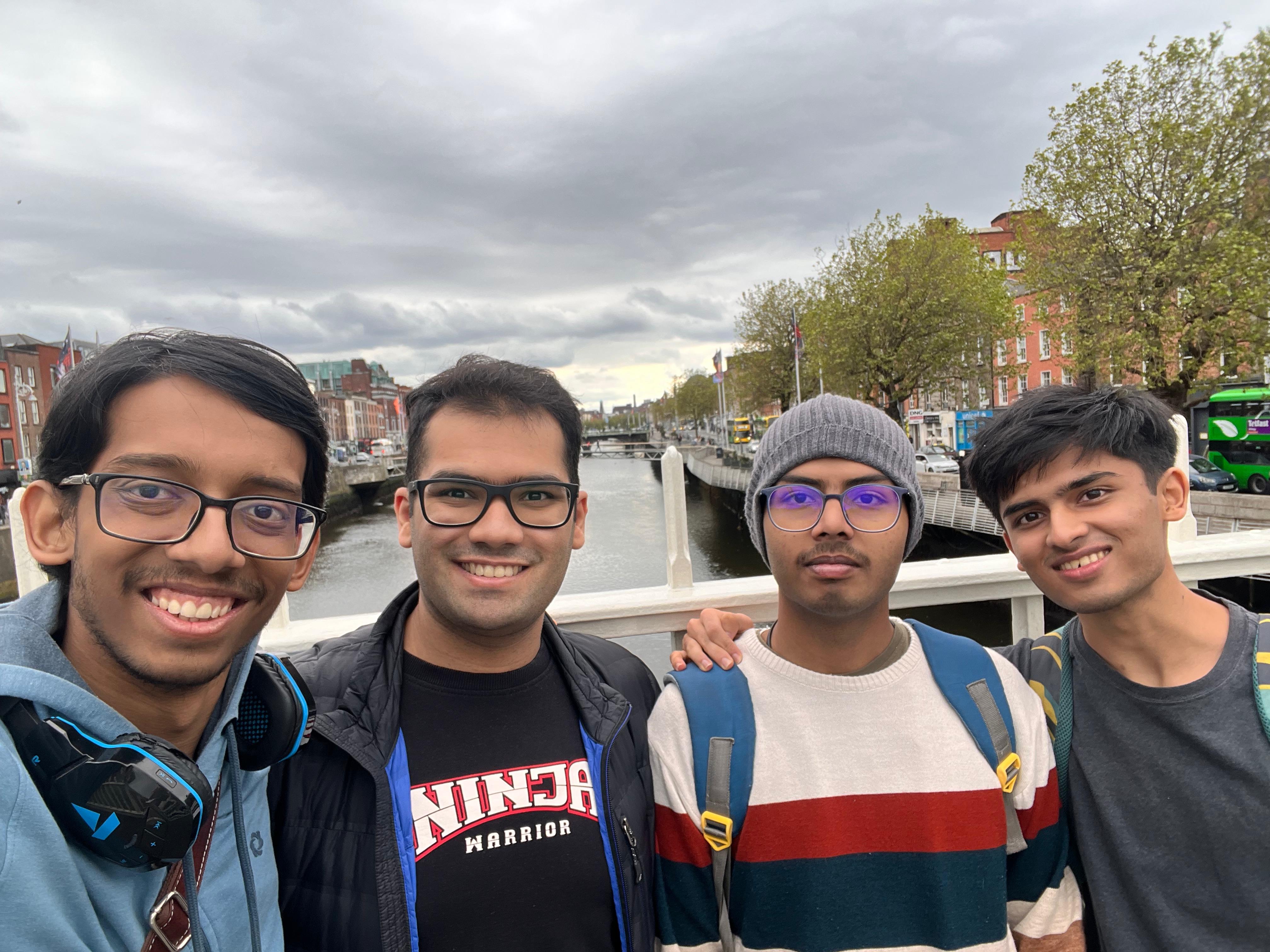Two UG student teams from IISc – “WattsUp” and “Classical Quanta” – have participated in the international PLANCKS competition and won 7th and 11th place respectively among 49 teams.
Team WattsUp consisted of Nikshay Chugh, Abhishek Kundu, Kanishk, and Dhruv Shah while team Classical Quanta consisted of Indrayudh Das, Rahul Agarwal Singh, Naman Goyal and Mayank Kumar. Team WattsUp was also awarded the first prize in the poster presentation for their poster on “Non-Gaussian Statistics in Static and Dynamic Galton Boards.” This is the first time that Indian teams have participated in this competition. Only two teams from across India were selected, both from IISc.

Team WattsUp

Team Classical Quanta
The Physics League Across Numerous Countries for Kick-ass Students (PLANCKS) is an exam-based physics competition for Bachelor’s and Master’s students. It is a three-day event filled with numerous excursions and social activities, alongside an opening symposium and the contest itself. Participants are encouraged to discover the research environment and culture of the hosting country. PLANCKS enables physics students from all over the world the opportunity to connect with each other. The aim of this event is to increase international collaboration, host social activities, and stimulate the personal development of individual contestants. By bringing physics students from all over the world together, PLANCKS creates the perfect setting for participants to challenge each other, and exchange ideas and experiences.
The IISc teams were selected through the preliminary Indian national exam, Indian Young Physicist’s League (IYPL), hosted by the Association of Indian Physics Students (AIPS). Team WattsUp was awarded the first prize in the national selections.
The finals were held in Trinity College, Dublin, hosted by the Department of Mathematics. The Institute of Physics (IOP) was the main organiser of PLANCKS 2024 in Dublin. The event was additionally supported by the International Union of Pure and Applied Physics (IUPAP), International Association of Physics Students (IAPS), the Irish Photonic Integration Centre (IPIC) at the Tyndall National Institute, Jane Street, Institute of Science and Technology Austria, and Wolfram Research, and so on. Guest lectures this year included talks by eminent speakers, including Dr Elizabeth Mathews, Prof Sinéad Ryan, Dr Miriam Rengel, Dr Clara Nellist, and Prof Seamus Davis. They spoke about the importance of Sign Language in inclusivity in STEM, Astrophysics, Theoretical and Experimental Particle Physics, and Visualising Quantum Matter.



